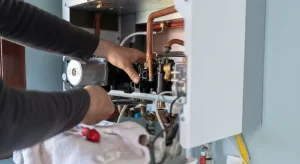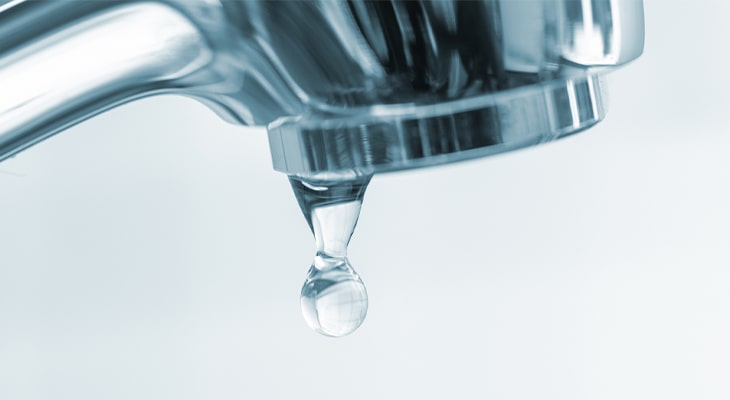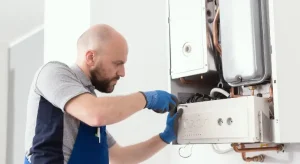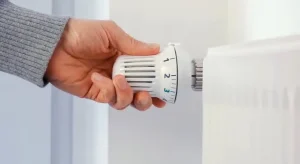
For most UK homes, gas boilers are cheaper to run. In 2025-2026, electricity costs more per kWh than gas under the Ofgem price cap, but is more efficient.

Water leaks might start as minor problems, but left unchecked, they can trickle into the territory of major headaches and costly repairs. Leaks from burst pipes or faulty appliances can lead to severe damage. They can ruin your floors and walls, and they might even affect your peace of mind.
The good news is that many water leaks can be prevented with proactive and straightforward home maintenance. In this guide, we’ll share seven straightforward and easy-to-follow tips to help you safeguard your home from leaks.
By following these small but powerful steps, you can protect your home. This helps lower the risk of costly repairs and keeps your property dry and secure.
One of the most common causes of water leaks during the winter months is frozen pipes. When water inside pipes freezes, it expands, putting pressure on the pipe walls and causing them to crack or burst. Insulating your pipes is an easy and effective way to prevent this damage.
How to prevent frozen pipes:
Insulating your pipes can help you avoid costly repairs down the line. It’s a simple action that really protects your home in winter. British Gas advises that insulating pipes and water tanks is “one of the best ways to prevent them from freezing.” They also recommend annual boiler services in the warmer months to prepare your heating system for winter.
Your roof is your home’s first line of defence against water leaks, so regular roof maintenance is essential. Damage or wear, especially after storms, can lead to leaks that affect your ceiling, walls, and floors. These leaks are often avoidable with routine checks and prompt repairs.
How to maintain your roof:
If you find any damage or weaknesses, address them immediately to avoid water entering your home. UK law requires landlords to keep the property’s roofs in good condition. This obligation is outlined in Section 11 of the Landlord and Tenant Act 1985. Therefore, proper roof care is vital for all property owners.
We offer professional roof cleaning in Dorset, Hampshire, and Wiltshire. Our experienced team can ensure your roof stays secure and leak-free.
Bathrooms are a common area for water leaks, often caused by damaged seals or faulty plumbing fixtures. Leaks around the shower tray, bathtub, sink, or toilet can go unnoticed, causing long-term damage to your property. Regular inspections of your bathroom fixtures are essential for preventing these issues.
How to check your bathroom fixtures:
Keep an eye on your bathroom fixtures. This can help catch small leaks before they become big problems. If you’re unsure about what to look for or need urgent professional help, our emergency plumbers are here to assist.
Appliances such as washing machines, dishwashers, and boilers are vital for your home. However, they can also be common causes of water leaks. Regular maintenance is essential. It helps appliances run smoothly and prevents water damage.
How to maintain your appliances:
Regular appliance maintenance each year can reduce the likelihood of leaks. This way, you can save time and money on repairs. If you’re not sure when your appliances were last serviced, now’s the time to book a check-up. Our local plumbing and heating experts are here to help keep your appliances in top condition.
Leak detection technology is one of the most effective ways to catch water leaks before they cause major damage. As you can see by this example at Three Legged Cross, these systems monitor your water supply. If there’s a problem, they alert you and can automatically shut off the water to avoid further damage.
How leak detection works:
Water companies in England and Wales are required to track leaks as part of their regulatory obligations. Ofwat is responsible for monitoring water loss from distribution systems. However, installing home leak detection provides peace of mind, especially when you’re away from home. They serve as an early warning system, allowing you to address issues before they escalate into costly repairs.
High water pressure can put unnecessary strain on your pipes, leading to leaks over time. By regularly monitoring your water pressure, you can prevent damage and maintain your plumbing system in good condition.
How to monitor and adjust water pressure:
Maintaining balanced water pressure is an easy and effective way to prevent leaks. If you’re unsure about your home’s water pressure or need help adjusting it, our emergency boiler repair team are here to help.
Water leaks often start small, and if left unchecked, they can cause significant damage. Damp patches, musty smells, and unexplained increases in water bills are common signs of a hidden leak. Regularly inspecting your home for these signs can help you catch leaks early before they escalate.
What to look for:
Be watchful and examine your home regularly. Doing this can help you find leaks early and prevent costly repairs. If you notice any signs of damp or suspect a leak, we’re here to help with expert leak detection and repair services. Discover how we’ve helped other homeowners prevent water damage in our case studies.
Preventing water leaks doesn’t have to be complicated. By following these seven easy tips, you can protect your home from water damage, avoid costly repairs, and keep your property secure. Regular inspections and prompt maintenance can prevent leaks from becoming major problems.
Greenstar offers expert leak detection and prevention solutions to keep your home safe throughout the year. Leaks can disrupt your home and lead to expensive repairs. You can stop these issues by taking simple actions. Start by insulating your pipes, inspecting your roof, and maintaining your appliances. Act now to save time, money, and headaches.
Call 01202 355 344 or arrange expert leak detection and keep your home leak-free.

Recent Posts

For most UK homes, gas boilers are cheaper to run. In 2025-2026, electricity costs more per kWh than gas under the Ofgem price cap, but is more efficient.

Boiler maintenance tips improve boiler efficiency with annual servicing, pressure and radiator checks, keeping the boiler area clear, and insulating pipes.

Heating system efficiency improves when you look after your boiler, maintain radiators, and set heating controls so your home stays warm using less energy.




